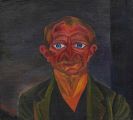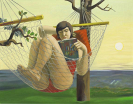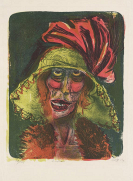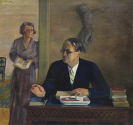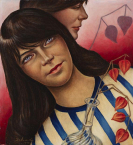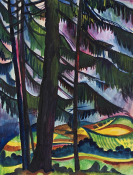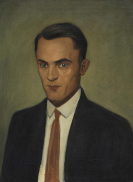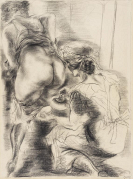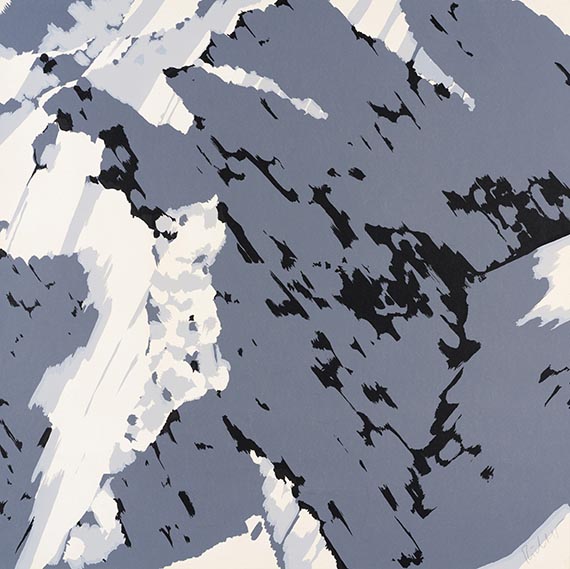
Georg Schrimpf
München
1889 -
Berlin
1938
In his autobiography, Georg Schrimpf described his futile artistic ambitions as a young man as follows: "After primary school I wanted to attend an institution, where I would have been taught how to draw. But I lacked the courage and confidence to persevere, so I was sent to a confectioner as an apprentice". His apprenticeship in Passau, Germany, lasted three years after which the 16-year old went to look for work. During the next four years Schrimpf travelled throughout northern Germany working as a baker, a waiter or shovelling coal. Travelling and continually moving became an important part of his life.
In 1909 Schrimpf went to Munich. The artist got caught up in an anarchist movement, due to which he frequently travelled to Schwitzerland and Italy. In 1913 Schrimpf retreated to Lago Maggiore for a prolonged period. During this time he started copying Michelangelo's and Raffael's nudes.
When the painter later returned to Munich, he once more worked as a baker and a chef, while dedicating his spare time to his real vocation: drawings and watercolors. When Schrimpf came to Berlin in 1915 he continued to accept various jobs, but the modern art that he saw here for the first time, also inspired him to make his first oil paintings.
In the same year the gallery "Der Sturm" exhibited the self-taught artist's pictures for the first time.
In 1920 after he had moved back to Munich, where the "Goltz" gallery arranged the artist's first individual exhibition. Only five years later, at a Mannheim exhibition on "Neue Sachlichkeit" ("New Objectivity"), Schrimpf was already excellently represented with 12 pictures. Until 1926 Georg Schrimpf taught at a Munich vocational school after a short stint as a teacher at the "Landeserziehungsheim Haubinda" in Thuringia.
That was followed by a teaching assignment at the "Staatliche Hochschule für Kunsterziehung" in Berlin in 1933 that he carried out until 1937. In the 1920s the original expressionist painter Schrimpf moved toward "Neue Sachlichkeit". For Georg Schrimpf, the adoption of Neoclassicism was not simply a development towards the idyll of Biedermeier landscapes. In these calm compositions, which excell through their link between object and construction, the painter managed to also give shape to his desire of depicting a calm life full of harmony and far away from any contemporary problems.
Would you like to sell a work by Georg Schrimpf?
Infos for seller
